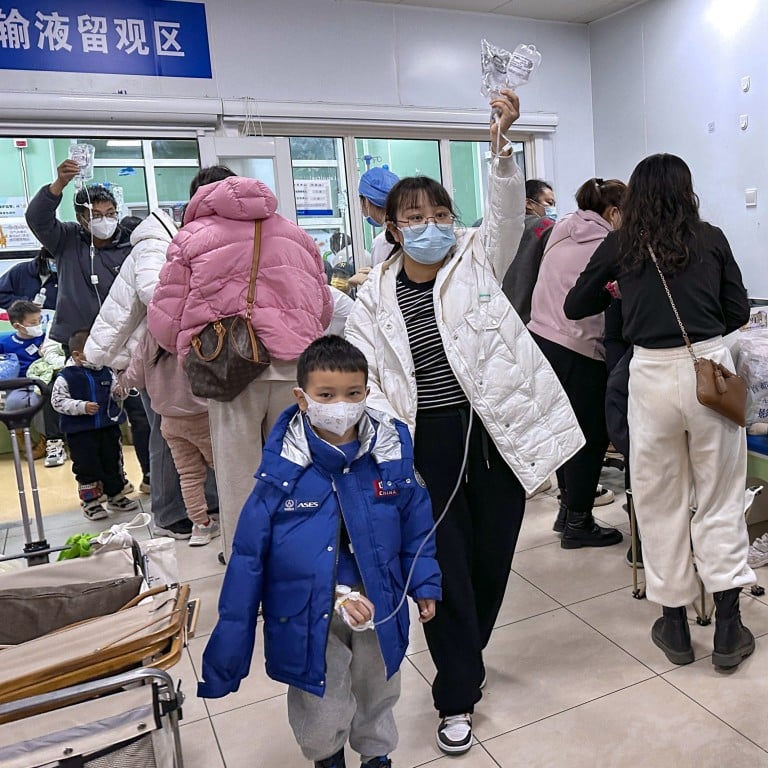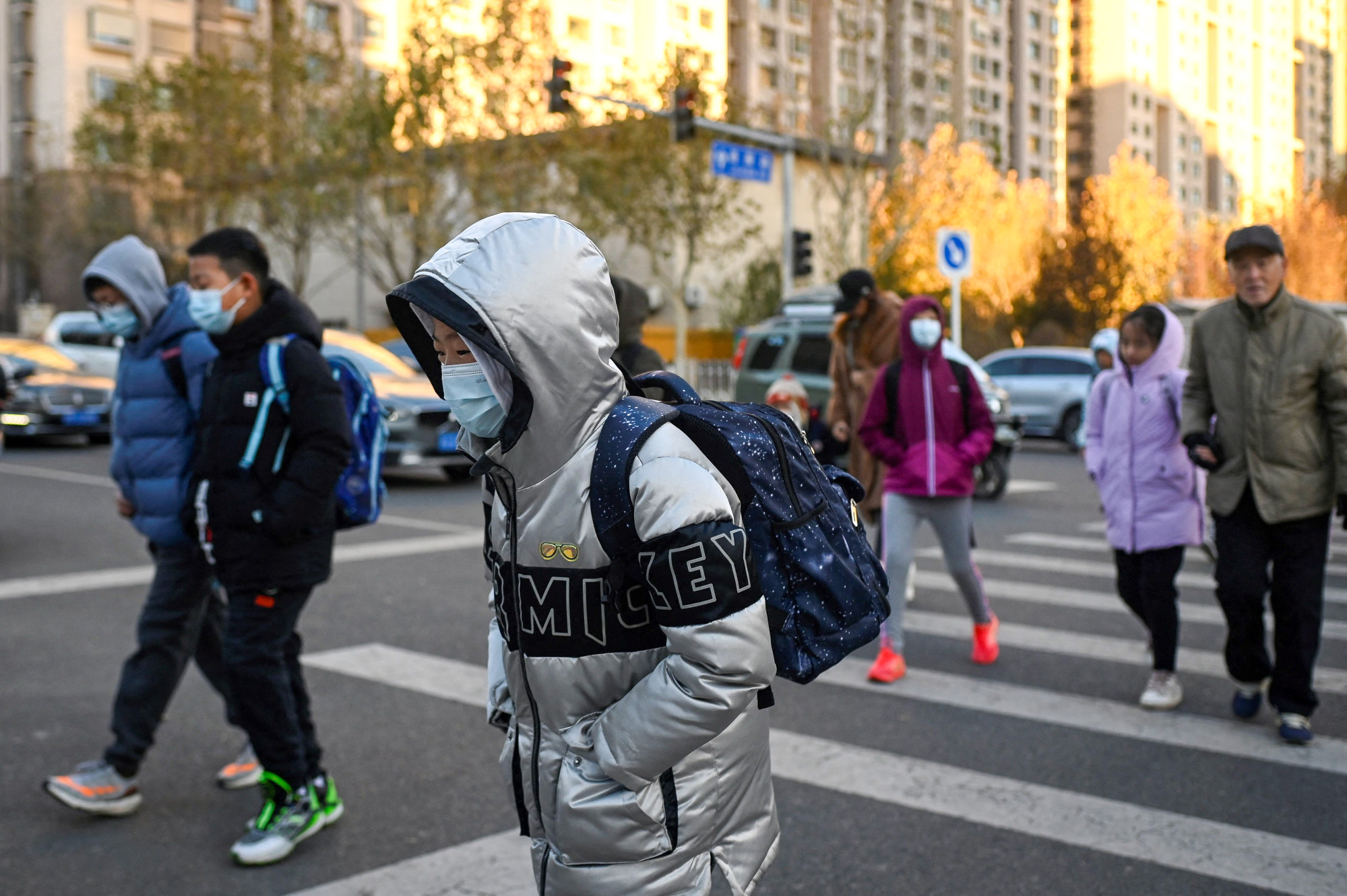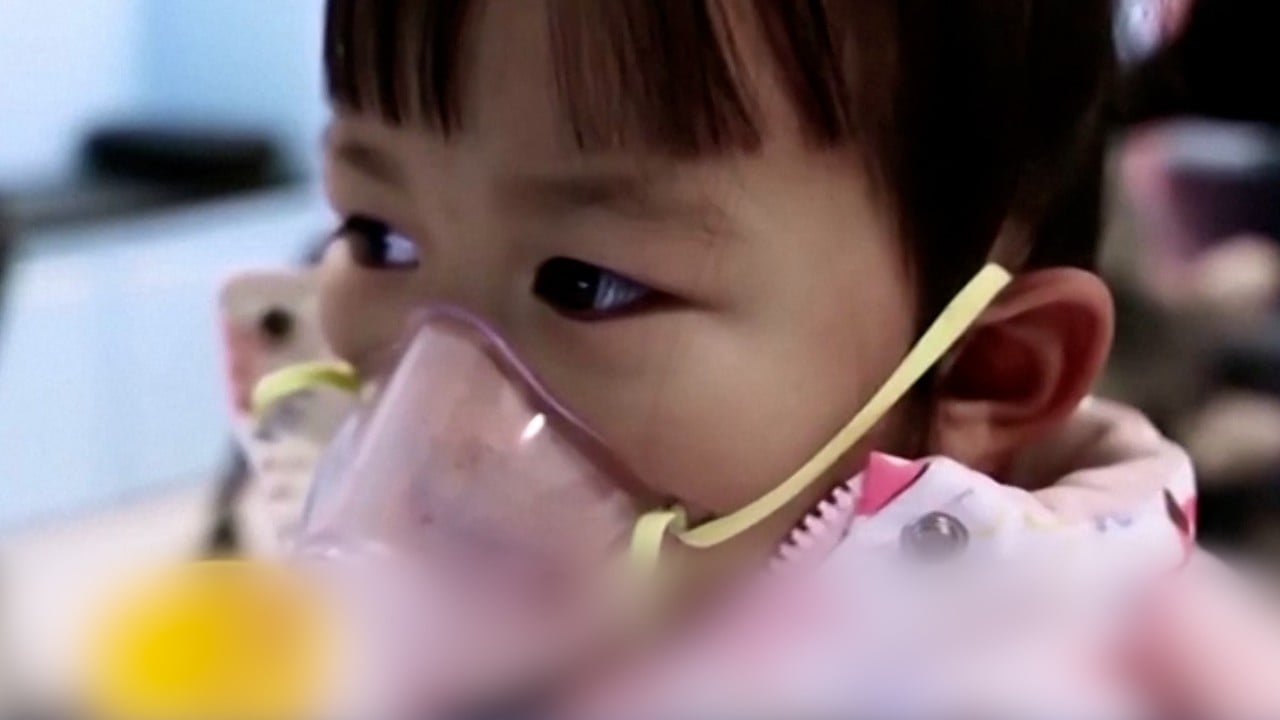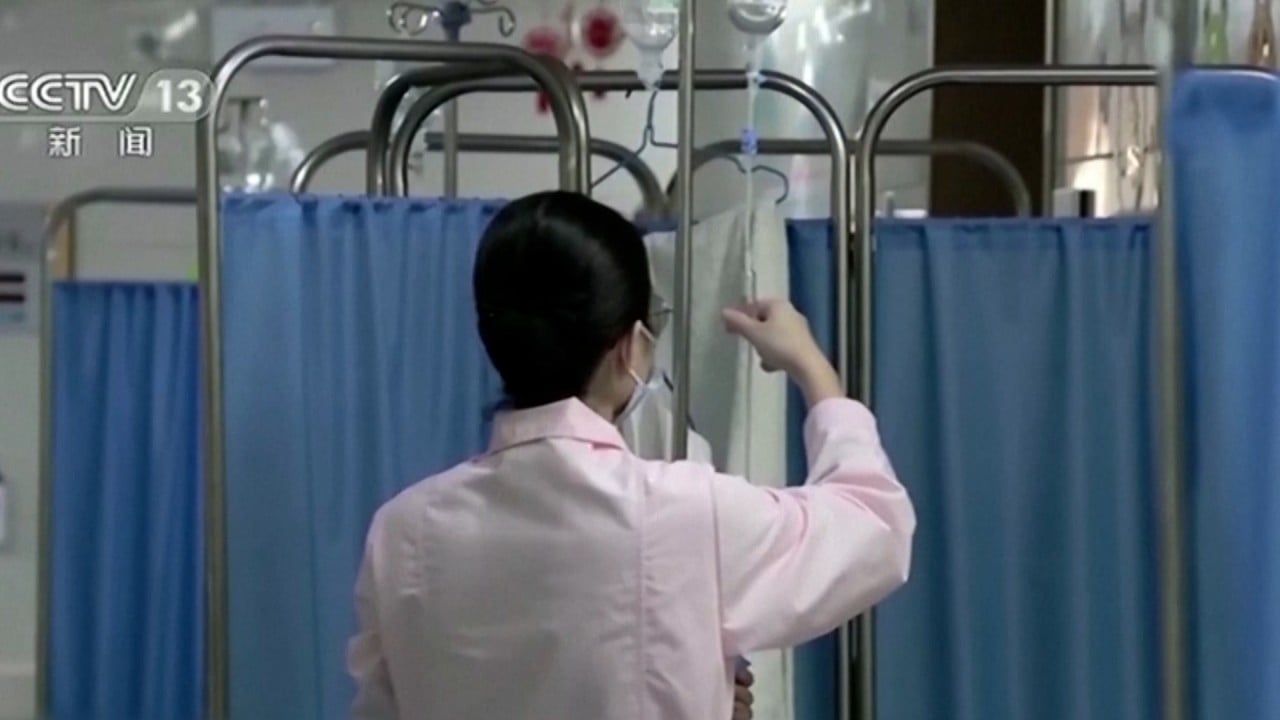
Chinese schools urged to step up daily health checks and work with authorities to help stop wave of respiratory illnesses
- The country has seen a wave of cases among children in recent weeks, something the authorities have blamed on multiple pathogens
- Parents and teachers express concern that some children are still coming to school when sick, helping to spread the disease further
In a directive issued on Monday, it also said schools should conduct risk assessments with local health departments to help fight the problem.
China has seen a spike in acute respiratory diseases among children since October. Paediatric departments across the country are reportedly being packed with young patients and forced to expand services to tackle the problem.
Zhang Ligang, 53, a teacher at a primary school in Wuhan in central China, said students at her school began calling in sick in mid-November, with more than 30 students absent from a school population of over 400 at the peak. She said that so far one class at the school has been closed.
“I feel the wave this year is less severe than last winter’s outbreak,” she said, referring to the surge of Covid-19 cases after Beijing abruptly relaxed zero-Covid restrictions.
Get a flu shot, health expert says as China battles respiratory illness wave
“We’re carrying out illness reporting and health checks of students every day. It’s a tradition from the Covid years.”
Zhang added the school would suspend classes and report to local disease control departments if more than a third of pupils in one class got sick.
In the directive, the education ministry also told schools to make preparations for online classes for sick children and guide them in home learning.
It also said schools should “guide families in disease control” and “collaborate with relevant departments to promote vaccination”.
Wang Dayan, director of the Chinese National Influenza Centre, said last Saturday that existing vaccines for prevalent respiratory diseases, including flu, have proved to be “safe and effective”.
“It is still effective for people who have not previously been vaccinated against influenza to get the flu vaccine now,” she said.
Liu Taobei, a 35-year-old designer in Wuhan, said he was “really worried” when his three-year-old daughter needed hospital treatment after coming down with a mycoplasma infection.
“The CAT scan revealed that half of her lung was white. It’s the first time since she was born that she’s been sick so badly,” he said.

“Kids are vulnerable. We do hope kindergartens can pay more attention to them, such as making them have meals separately and reminding them to wash hands regularly.”
A mother surnamed Liu in Beijing said that she hoped the her son’s school would close for a while to stop infections spreading.
“Or the school can at least change to online teaching,” the 36-year-old said. “Too many kids are sick. Some parents send their kids to school even when they’re sick, so that the kids won’t miss classes.”
She said her son in primary school had contracted pneumonia in mid-November as a result of the flu and a mycoplasma infection, and has yet to recover.
WHO worried bird flu might adapt to humans ‘more easily’
“Daily temperature checks and mass disinfection are all necessary measures. But my son’s school stopped doing them after the pandemic,” the mother said.
She said parents were struggling to get an appointment for their children at clinics and all the Beijing paediatrics departments she had visited with her son were overcrowded and admitting hundreds of children every day.
On Saturday the National Health Commission urged hospitals to “maximise the capacity of hospitals” by increasing paediatric outpatient services, extending service hours, promoting online healthcare and making sure they had enough supplies.
Xu Jinjin, a 24-year-old primary school teacher in Wuhan, said that she felt the schools “can’t do much” to control the spread of illness.
“We’ve been sending out frequent reminders to parents lately, telling them not to send children to school if they have a fever, cough, or anything like that. But some parents are still not conscious enough of this matter,” she said.
“We can’t just stop classes on a large scale; it would mess up the teaching. Infections seem inevitable at school as dozens of students gather in a classroom for lessons and meals, especially when many kids are reluctant to wear masks all the time.”



